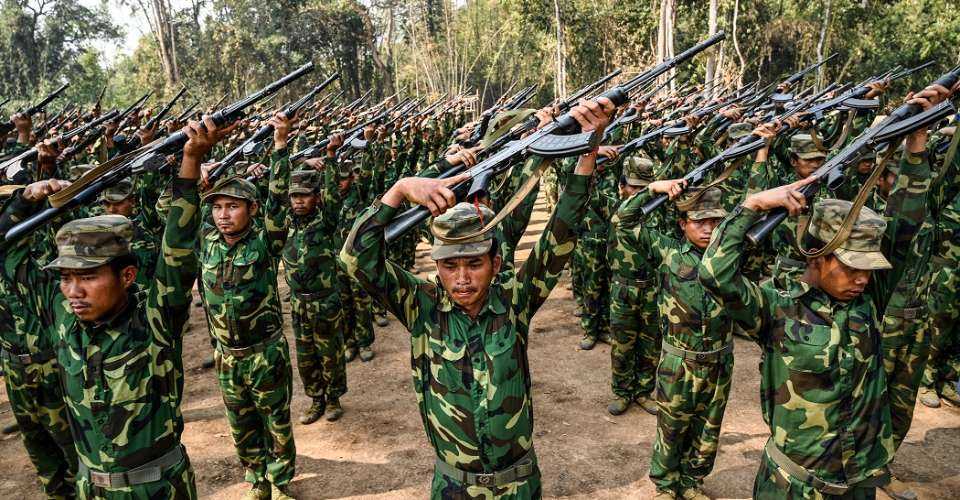 By Luke Hunt
By Luke Hunt
China has urged two of Myanmar’s Ethnic Armed Organizations (EAOs) to lay down their weapons in return for improved relations with Beijing, as fighting intensifies around military bases and oil and gas assets, where anti-regime forces are battling it out with the military.
That offer came as the junta announced an extension of its ceasefire, initially declared after the March 28 earthquake struck Mandalay, but repeated attacks and aerial bombardments made by the military meant any such truce was “unworkable and unthinkable,” anti-regime forces said.
“Attacks on civilian populations have been relentless,” said an EAO source from Mae Sot on the Thai border. “The fighting has continued after the earthquake just like before the earthquake and nobody believes what the junta says, even the Chinese.”
She also confirmed reports that the Karen National Liberation Army — one of 20 EAOs battling the military since it staged a coup in 2021 — had recaptured the junta base, Baw Boe, near Myawaddy, which sits across the border from Mae Sot.
The fighting erupted despite pressure from China’s special envoy to Myanmar, Deng Xijun, who has reportedly urged the Arakan Army, which now controls large swathes of Western Rakhine State, and the Kachin Independence Army, to halt their military offensives.
In return, China was offering improved ties with Beijing, The Irrawaddy reported, while the military was massing troops outside of Mandalay, where analysts are saying they were preparing to retake some areas around Chinese oil and gas assets.
Independent analyst Paul Greening, who is based in Mae Sot, said China was hedging against the junta and fears the military under Gen. Min Aung Hlaing will eventually succumb to the EAOs and the People’s Defence Force under the National Unity Government (NUG).
“These military bases were once guarding the pipeline, which shows that the junta can’t protect Chinese assets. And China will understand that. All the EAOs are saying, and the NUG, is ‘we will not harm Chinese assets.’ They’re trying to reassure them of that.
“Clearly, the junta can’t protect it. But it’s a delicate balance. China would prefer the military, as an authoritarian regime, they’re easier to deal with, but its main interest is just economic and protecting its oil and gas pipeline,” he said.
He added that the military can only lay claim to absolute control over 15 percent of the country, while the EAOs-PDF have absolute control over more than half, with 35-40 percent still being fought over and subjected to heavier bombardments.
“The resistance is certainly making strong inroads. It’s very clear that the military has got nothing really except air power. And they spent, on dropping bombs, 66 percent more this year than last year,” he said.
“This is aimed at terror. They want to terrorize the people, and some of their thinking is if they terrorize the people enough, the people will put pressure on the Ethnic Armed Organizations to actually call a ceasefire or actually give up fighting and give up their arms.
“I haven’t seen any indication that that’s going to happen over the last three years. You look at what’s happening historically in other armed conflicts. You keep bombing, torturing, and killing the people. It just makes them angrier.”
Meanwhile, the latest survey by the United Nations Development Programme (UNDP) indicates that approximately 2.7 million people are now living below the poverty line in Yangon, Myanmar’s largest city and the nation’s commercial hub.
It said that this represents 43 percent of Yangon’s 6.2 million people, adding just 10 percent of the city’s urban population was classified as poor in 2017 and that the recent figures showed a structural unravelling that demands an urgent, multidimensional response.
“The erosion of social and economic resilience in Myanmar’s urban centers is not just a matter of statistics,” said Titon Mitra, UNDP Resident Representative in Myanmar.
“It is lived daily by millions in overcrowded settlements,” he said, “with empty plates, difficulty in accessing health services and for those few who have jobs, in long working hours under exploitative conditions.”
The article appeared in the ucanews
